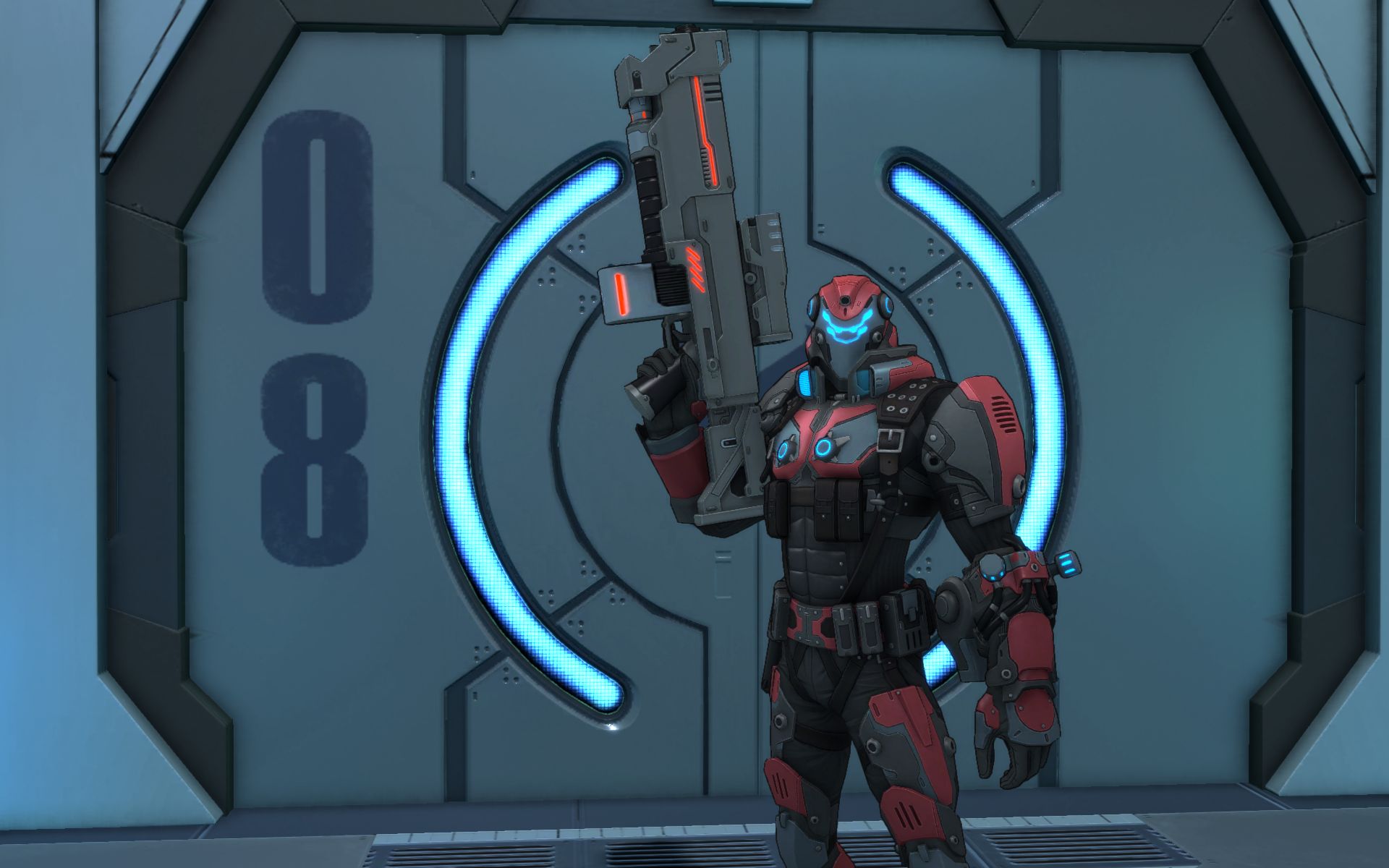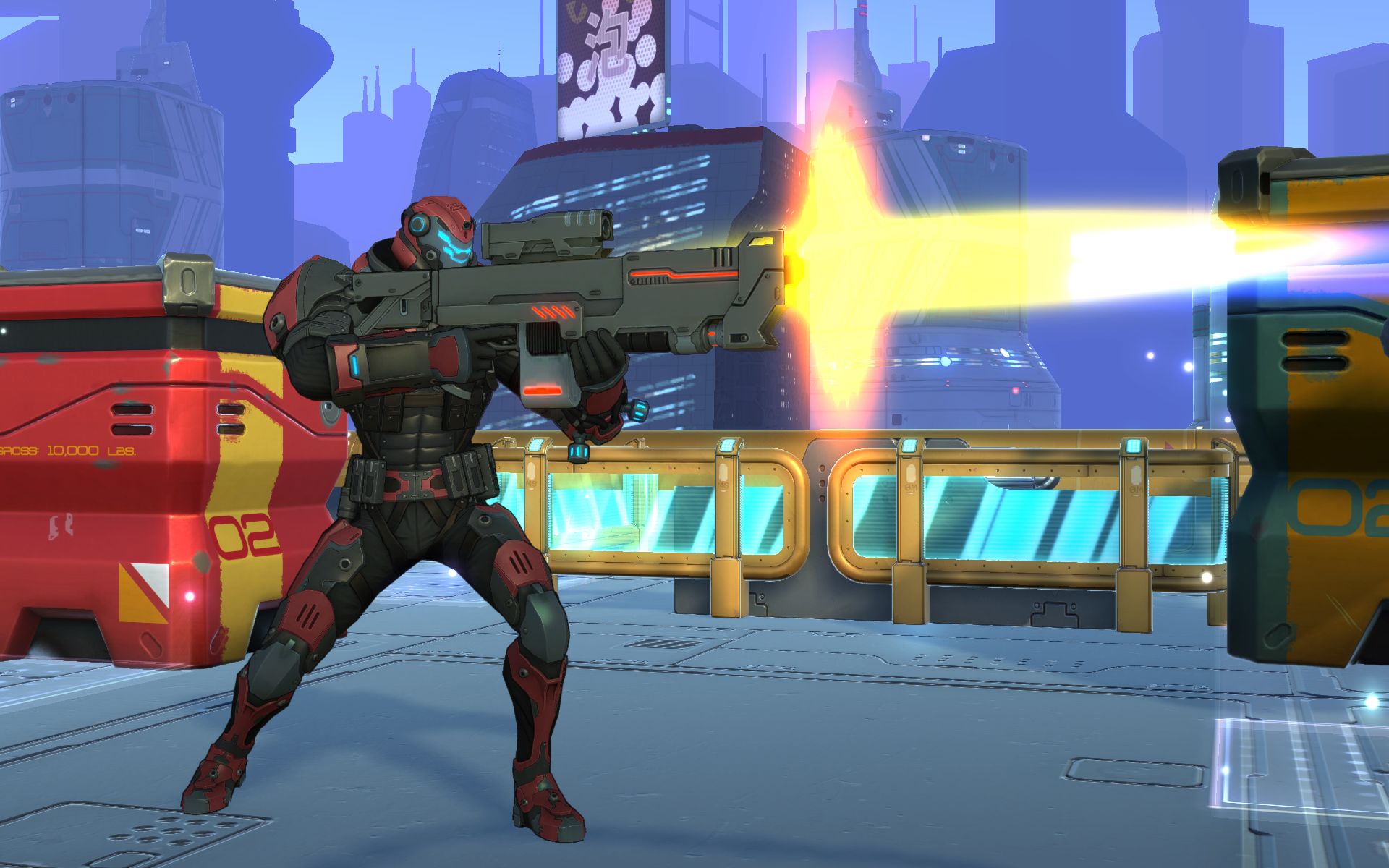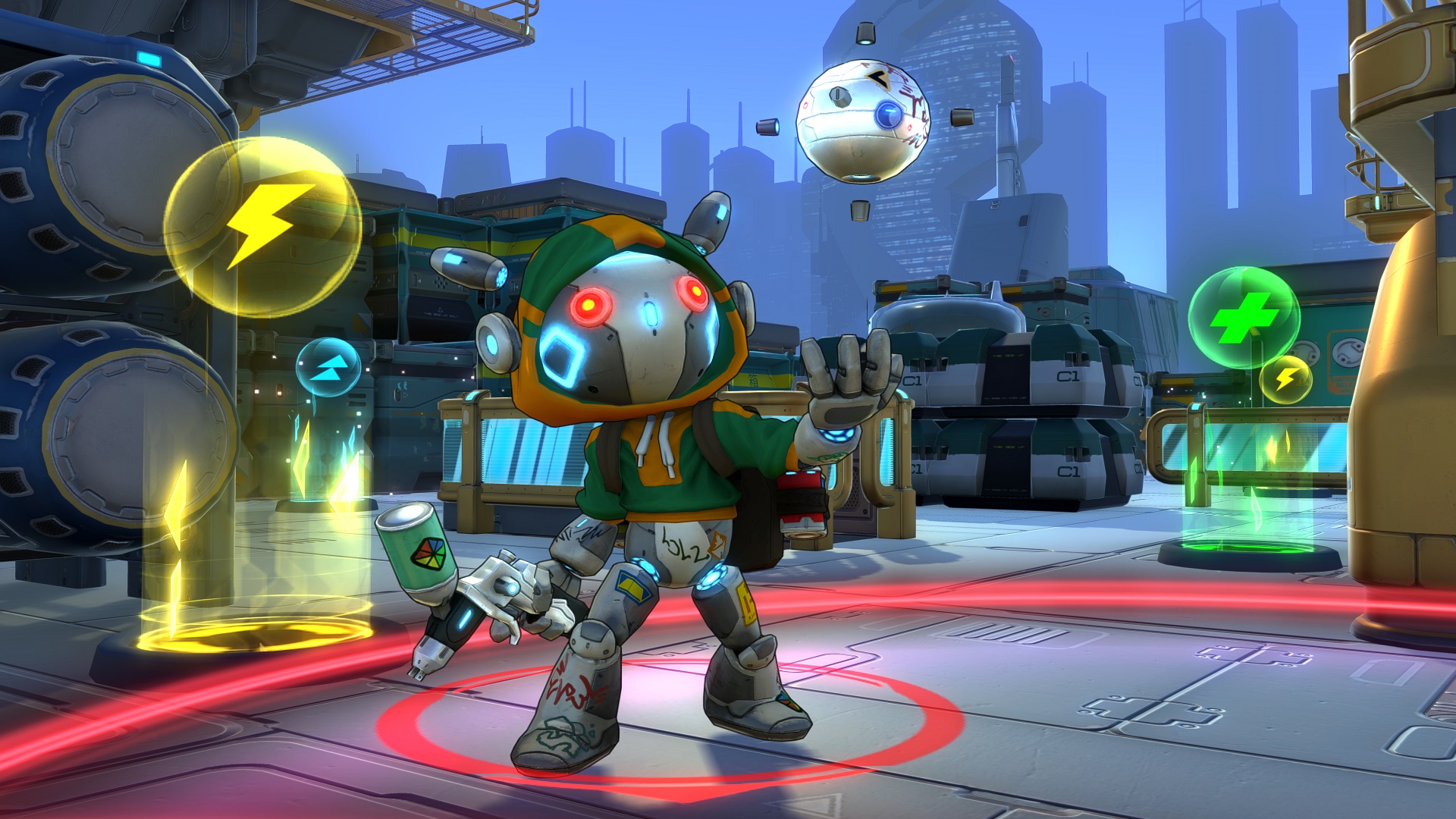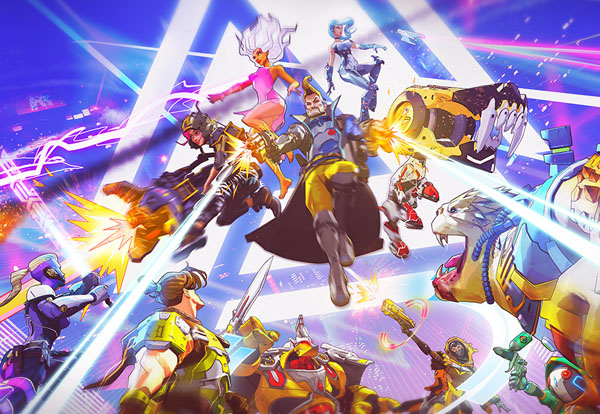One often hears the phrase, “you’ve never played anything like this,” but rarely is it true. However, Atlas Reactor turns out to be one of those rare gems by mixing turn-based action with a competitive online element. Published by Trion Worlds (famous for massively multiplayer online games [MMO] such as Rift and Defiance), the game recently entered into Early Access on Steam, and is in its final days of an extended free-to-play period. There is currently a healthy roster of about 19 characters, with a new one added each month.
Peter Ju, executive producer for Atlas Reactor, spoke with [a]listdaily and described the game as “a team-based PvP game that is also a strategy tactics game. What is interesting about our core setup is that we use simultaneous turns. It’s 4v4, and everyone on your team and the enemy team are all making decisions at the same time during the decision phase. Then, during the resolution phase, you see how those moves play out.”
William Cook, lead designer for the game, sums it by jokingly saying, “It’s 20 seconds of making a plan and 20 seconds of watching it all fall apart.” He continues by saying, “We started this project with the question: ‘how do you make a multiplayer turn-based game fast and fun?’ We came away with the answer: it’s always got to be your turn!”
“Simultaneous turns reward fast thinking,” Ju adds. “but it doesn’t require twitch reflexes to become an expert at the game.”

Joining The Competition
Unlike many other competitive titles, Atlas Reactor is a premium game that goes for $20, but it will offer a way to play for free.
“Soon, we’re going to introduce a free mode, which can be played using a free rotation of the characters,” said Ju. “If you like the game, you can pay $20 to get access to all the characters. We didn’t want to give piecemeal access to stuff because when we started developing ranked mode, we felt it was really important that everyone have access to all the characters. The one way to guarantee that was to have one flat fee. We didn’t want to figure out how to monetize people correctly in a competitive game and be overly concerned with monetization.”
Cook also explained that Atlas Reactor started out as a free-to-play game until the company decided that purchasing, similar to Overwatch, would be a better model. Ultimately, the games progression system will follow Overwatch‘s style by offering cosmetic items for players to earn through gameplay.
So how do you get the word out about a game that’s as unique as Atlas Reactor? “We’ve been in closed beta, and we’ve had an open (free-to-play) weekend so people can just try out the game,” said Ju. “It’s a different game that’s hard to describe, so we let people try it out to see if they like it. The people who have been playing it have been great in trying to get the word out.”
“It’s been amazing,” said Cook. “The community has been so positive in trying to push it, and they give us a lot of pressure to push it harder too. We’ll be at Gamescom and PAX this year as well.”

Making Games People Can Play Together
When asked why Trion Worlds, a publisher that specializes in MMO games, decided to develop Atlas Reactor, Ju explained that, “what Trion wants to do is make games that people can play together. We’ve focused on online multiplayer games and this kind of falls into that.”
“Trion is pretty good about fostering new ideas. Trove was not a traditional MMO; it was more about bringing people together in different sandboxes. That came out of the Trion Labs projects, and this is another one of those,” said Cook.
Cook described how getting early feedback from players guided development decisions. “Funny story, we put custom games in much earlier than we thought we would due to player feedback. Once players started jumping into the game, the first thing they wanted to do was run their own tournaments, and they needed custom games to do that. The next thing they wanted was the ability to spectate, so we built that a lot sooner than we anticipated. Finally, we added replays because they wanted to analyze games in post-game style.”
Given that positive reaction, it seems like Atlas Reactor might have a future as an eSport. “We can always hope,” said Cook. “We’re trying to make a competitive game that’s eSports compatible. We put in a lot of tools that make it easier to watch and set up tournaments so users can push that agenda on their own.” Ju added that “our primary goal is to make a fun game. Any fun, competitive, game that people like will have an audience for people to watch.”
Part of the challenge is in getting people to play competitively. “There is a certain type of personality that enjoys competitive play,” said Ju. “We do have matches vs. AI, so there’s a smooth transition over. One thing that’s really nice about this game is that if you play with friends, that friend can quickly teach you how to play well compared to other games. Sessions are relatively short—around 20 minutes or less—and when something goes wrong, you know exactly why and what you should have done, and that’s a helpful learning tool. Losing isn’t that bad because you can learn from every loss.”

We also asked if the Early Access process, where players purchase and play the game early and provide feedback, helped to promote the game. “Definitely,” said Ju, who explained the pros and cons. “We get early feedback, and that helps a lot. People get to hear about the game and try it out organically. But I think that one of the challenges of Early Access is that people feel like it’s a full game already and get upset at changes. Another challenge is maintaining momentum. It’s something you need to be aware of with Early Access. When something first comes out, people think it’s interesting. Spread that out over months, and you have to maintain that enthusiasm by adding new stuff.”
Cook also added that offering new characters, maps, mods balance updates and features will help keep the game fresh by offering new ways to play. There are also unique rewards to playing in ranked games.
The Challenge Of Being Unique
So, how does Trion promote a game that’s not quite like any other game that’s out now? “I think one of the challenges is that the game is familiar, but at the same time, it’s not,” explained Ju. “I feel like people have a grasp of what it is, but once they start playing, they see it’s different from other games out there.”
“Personally, I found that the hardest thing is also the thing that allows us to survive,” Cook added. “There are a ton of character-based third-person shooters. But for us, we play completely differently, and there’s never been a competitive game quite like this in the turn-based team space. You can say that to people, but they either don’t believe you or they think turn-based means one thing, so it’s very hard to pitch: ‘Try this, it’s new. You’ve never tried anything like it.’ So being unique is both a challenge and a merit.
“You’re getting the teamwork [aspect], but this is 20 seconds of that plan and then 20 seconds of watching it happen. There’s this anticipation that’s almost similar to watching American football. There’s the 20-second huddle, then 20 seconds of the announcer building hype while people make predictions about what the teams should do, and then everyone watches as anything can happen in the resolution phase.”
“And you see who made the right choices,” continued Ju. “You watch poker, and you hear people asking, ‘Did they make the right choice?’ every single time. Same thing for football; did they make the right choice?”
Having unique gameplay and being a new IP presents two challenges that Trion must work to overcome. We asked how they were working to overcome them.

“Being on Steam offers a lot of visibility,” said Cook.
“Once we implement free mode, people can try it out whenever they want,” Ju said. “That’s a nice barrier that’s removed. I think a lot of news outlet exposure will explain what type of game it is, and there’s word-of-mouth from our players. This is definitely a game that will grow over time.”
“Much like the start of a lot of these competitive games,” said Cook. “Just think of how long it took to get from DOTA to Overwatch in terms of character-based competitive games being a thing. It took seven years before League of Legends took over the world. It wasn’t huge overnight because it was an incredibly dense subject matter, and a lot of people didn’t even understand why it was fun. This year is a rash of games featuring character-based competitive genre. And as far as the new IP is concerned, we have a glorious new trailer that we’re releasing next month at Gamescom that will bring people into the action.
“There are challenges, but they’re also the stuff you dream about doing as a game developer—a new game with a new IP. And how often do you hear, ‘you’ve never played anything like this’? This is actually true.”

